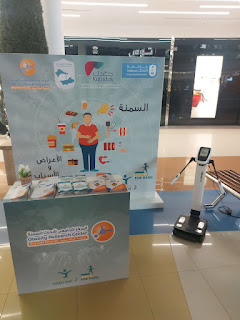A medical team from the Protein Research Unit at the University Center for Obesity
A medical team from the Protein Research Unit at the University Center for Obesity Research in the College of Medicine at King Saud University has demonstrated through scientific research the presence of protein changes associated with the use of liraglutide treatment and its correlation with reducing blood glucose levels, as well as improving the health of the heart and blood vessels in patients with type 2 diabetes. The researchers relied on mass spectrometry-based proteomics combined with bioinformatics to analyze the protein network pathway in the plasma of individuals with type 2 diabetes before and after using liraglutide treatment. Dr. Asim bin Abdulaziz Al-Fadda, the Director of the University Center for Obesity Research at the university, explained that the use of this treatment is accompanied by a decrease in glycated hemoglobin levels in the blood, and a change in several proteins responsible for regulating metabolic processes, including acute-phase response proteins, enzymes, fatty proteins, and several proteins in inflammatory pathways. He pointed out that the decrease in acute-phase response levels leads to reducing chronic systemic inflammation and oxidative stress, which may be one of the scientific explanations for the positive effects of liraglutide treatment in improving heart health and metabolism in these patients. Dr. Al-Fadda emphasized that continued research in this area will enhance understanding of the effects of modern treatments in the field of diabetes and in reducing the complications of this disease on the health of affected individuals, especially as the future antagonist of glucagon-like peptide-1 (GLP-1) receptors liraglutide reduces blood glucose levels, decreases weight, and improves heart and vascular health. However, the underlying mechanisms behind the treatment's benefits for patients with type 2 diabetes remain unclear. It is worth mentioning that diabetes is one of the most common chronic diseases worldwide, with high incidence rates.مرتفعة.#واس_علمي




Comments
Post a Comment